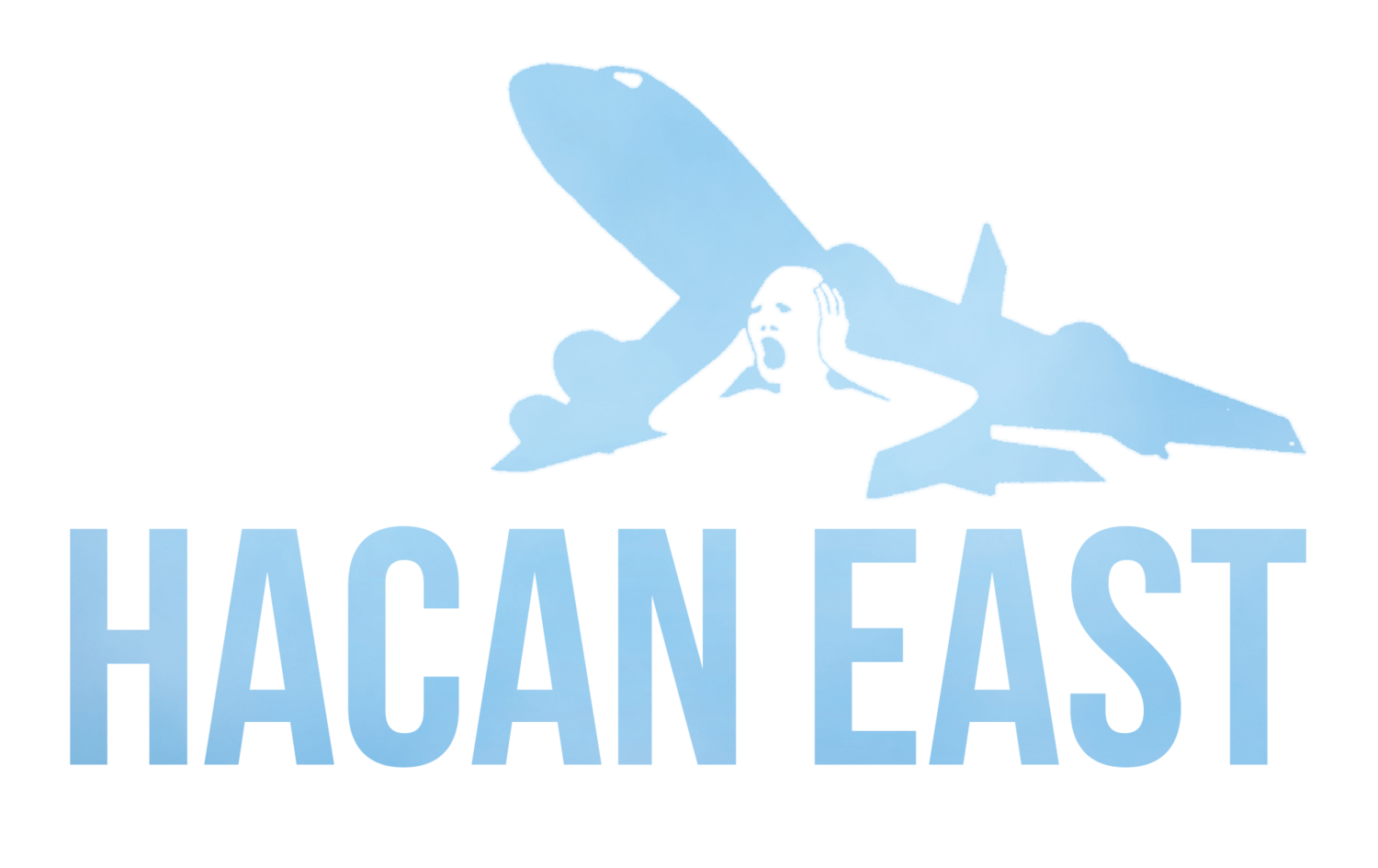WE ARE HACAN EAST
HACAN East is a campaign group made up of concerned residents from East London and South East London mainly concerned about the impact of London City Airport. Some of us, though, live under the flight paths of both London City and Heathrow airports.
HACAN East is the successor body to Fight the Flights which mounted a four year campaign to prevent permission being given for a 50% increase in flights using City Airport.
HACAN East is a sister organisation to HACAN, the long-standing organisation which represents people under the Heathrow flight paths – www.hacan.org.uk
HACAN East argues that noise levels in the area are already unacceptable. It opposed the permission a few years back for a 50% increase in the number of planes using the City Airport, permitting 111,000 planes to use it each year.
HACAN East opposes the concentration of City's flight paths without any respite being provided.
HACAN East recognises that airports can bring jobs and help the economy but questions whether the economic benefits of an expanded City Airport will outweigh the environmental problems it will bring.
HACAN EAST IN THE NEWS
Following the announcement of the expansion decision, HACAN East has featured prominently in the media. We appeared on BBC London News and were quoted in the Times, Telegraph and Financial Times as well as many of the local papers.
IMPLICATIONS OF PUBLIC INQUIRY DECISION
On Monday 19th August the Government announced its decision on London City Airport’s application to expand (see our immidate press release below). It endorsed the Public Inquiry Inspector’s recommendations:
REFUSED permission for planes to operate on Saturday afternoons
GRANTED permission to operate 3 more planes during the first half hour of operation from 6.30am till 7am
GRANTED permission to increase annual passenger numbers from 6.5 million to 9 million a year
Full judgment: https://www.gov.uk/government/collections/planning-applications-called-in-decisions-and-recovered-appeals#recovered-planning-appeals
The preservation of the weekend break is a big win for communities, Newham Council, the planning authority and the many MPs, GLA members and councils who fought to preserve the break from the noise between 12.30pm on Saturday and 12.30 on Sunday.
At the Inquiry City Airport argued that Saturday afternoon flying was central to its strategy to attract 'high value' leisure passengers to replace the diminishing business market. That argument was not accepted by the Inspector.
Remember, City was not applying for permission to operate more planes. There is a cap of 111,000 per year. In due course, any extra passengers will largely be accommodated on larger planes. These planes will cause less climate emissions. But they will not be significantly quieter. Although they will be quieter on departure close to the airport, they are unlikely to be noticeably quieter elsewhere. Private jets did not feature in City's application.
What are the implications of the decision?
The weekend break will remain
If the market is there, the airport may reach its annual ceiling of 111,000 within about 6 or 7 years. But there is considerable doubt whether the market will be there. In 2019, the last full year of operation, there were 83,000 flights. Last year it was just over 50,000.
New planes will be gradually phased in. They will be larger (though, because of where the airport is sited, there is a limit to the size of plane that can be accommodated - Ryanair and Easyjet plans, for example, are too big for it. The will be marginally quieter, though the difference in most places will be so small that it will be imperceptible to the human ear; only on departure close to the airport will there be a noticeable difference. They are likely to be more fuel-efficient than the current planes and so emit less CO2 emissions.
More information on News and London City Public Inquiry pages
UPDATE on the concentrated flight paths
The Public Consultation is now not expected until 2025, or maybe even 2026. All airports in the UK are required to change their flight paths as air traffic control moves from a ground-based system to a satellite system. The change needs to take place in a co-ordinated way. London City concentrated its flight paths in 2016. The airport sees the coming consultation as a chance to alternate its flight paths so as to give people a break from the noise.
More Information on our Flightpaths page
FOR A BRIEF HISTORY OF THE AIRPORT, read our report
https://acrobat.adobe.com/link/review?uri=urn:aaid:scds:US:b7f60c62-9c88-390c-86e9-94e933a22333


